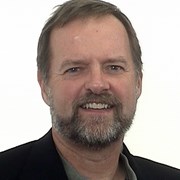Safe treatment of wastewater to minimize discharges and waste must ensure our health. At the same time, the recycling of resources from the wastewater must ensure sustainability and the environment.
Tomorrow's water and sewage plants should therefore be resource recycling plants, have a lower climate and environmental footprint than existing plants, and handle new pollutants and future requirements for sewage properties and sludge management.
Essential factors in achieving this will be:
- More compact process solutions to reduce the use of construction resources
- Implementation of innovative and sustainable treatment processes
- Sensors and intelligent control systems that can use machine learning to optimize the operation
We work within the following fields:
- Process and system solutions for municipal and industrial wastewater (aquaculture, oil and gas, pharmaceutical, food) and residual products:
- Process design
- Life cycle analysis and cost of living analysis (LCA / LCC)
- Multi-criteria analysis for process and system selection
- Experimental testing and verification in a laboratory with a supply of municipal wastewater.
- Data analysis and optimization of process solutions
- Reuse of wastewater and recycling of resources
- Scattered drains
Challenges in wastewater management:
The water industry in Norway faces challenges that require new knowledge and innovation in technical and non-technical aspects:
- In Norway, the regulations that affect sludge management are under revision. We expect that this will reduce the amount of phosphorus used on agricultural land and that sludge can only be spread during the growing season.
- The EU Wastewater Directive will be revised, and the regulations may place more emphasis on micro-pollutants (e.g. renewable organic pollutants) and other specific compounds in addition to the bulk parameters (BOD5, totally suspended solids, total phosphorus and total nitrogen) associated with eutrophication prevention.
- Increased focus on sustainability, new technology and digitalization.
- Municipalities and treatment plant owners set ambitious goals regarding zero emissions to air, water and soil, and value creation from waste.

